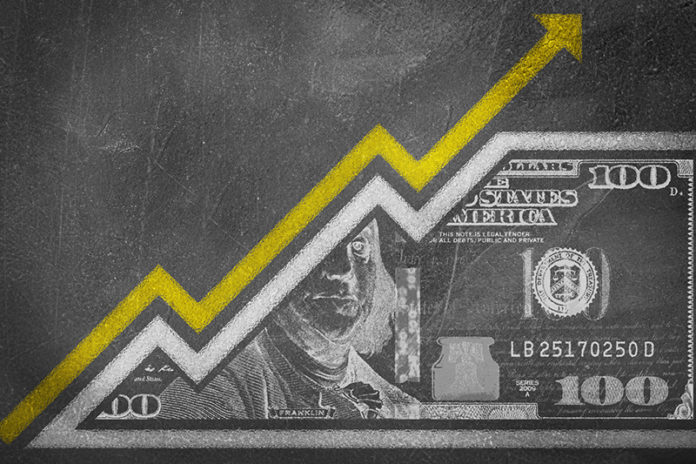White House Chief of Staff Ron Klain recently endorsed the idea that inflation and supply-chain struggles Americans are struggling with are “high class problems.”
I’m in no position to comment on whether the inflation spike we’re experiencing is “transitory” or not (though, metaphysically speaking, isn’t everything!). Maybe it will be a short-term problem sparked by supply shocks and pent-up post-COVID demand, or maybe inflation will linger for years and become a self-fulfilling prophecy due to expectations. Whatever the case, a president who feels comfortable with taking credit for “creating” millions of jobs after state-compelled shutdowns is likely going to be blamed. You can’t have it both ways.
And while it’s not unreasonable for an economist such as Jason Furman to point out that, in the big picture, most of America’s tribulations are “high class,” it’s quite a different story for the administration to dismiss those concerns. Because in our reality — the one where the president promised to fix everything — the inflation debate is important for a number of reasons.
One, the administration is, as we speak, campaigning to cram through a welfare-state bill that could dump another $5.5 trillion into the economy. What justification is there for unprecedented spending when inflation is accelerating? Democrats have already passed an additional nearly $2 trillion in expenditures in the first six months of the Biden administration, and the economy is still underachieving.
When asked whether he believed that passing another colossal spending bill would exacerbate the problem, the same president who contends that his $5.5 trillion welfare-state expansion bill costs “zero” argues that more spending would “reduce inflation, reduce inflation, reduce inflation.”
Biden has waved away inflation concerns on numerous occasions, once arguing that “no serious economist” was suggesting that “unchecked inflation” was on the way. This was four months ago. We are now in our sixth month of historic spikes. I’m not sure if Biden considers Larry Summers, former Treasury secretary for Bill Clinton and Barack Obama’s National Economic Council director, a serious economist, but Summers seems to believe runaway inflation and bottleneck supply-chain problems pose a serious risk to the economy.
As a political matter, inflation isn’t some abstract philosophical debate but something tangible and historically fraught. The older you are, the most sensitive you likely are to the potential harms of inflation, having either lived through the 1970s or heard about that dreadful decade from your parents. Even as a kid, I can remember the specter of “inflation” hanging over the adult world. The era’s stagnation was fixed only with the institution of high interest rates and a couple of serious recessions. Inflation conjures up images of gas lines and “crisis of confidence” speeches.
For retirees, inflation means instant wealth destruction. For everyone else, it means immediate hikes in the cost of living. Consumer prices, led by energy and food prices, have increased 5.4% overall since last year, which is the largest increase since 1991. The producer price index is up 8.6% over the past year — in its sixth month of record highs.
Social Security benefits will rise nearly 6% for retirees in 2022 because of a cost-of-living adjustment — the biggest surge in decades. So, apparently, the government believes the transitory period will extend at least into the next year.
Gas is up 42% over last year as well — the cost of which is embedded in nearly everything (and counterproductive anti-gouging policies will surely make the situation worse, but that’s another story). This week, the U.S. Energy Information Administration said it expects households to see their heating bills jump as much as 54% compared with last winter.
Even as Klain was retweeting Furman, Politico reported that the White House has been “consulting” the oil industry “to seek a remedy for rising gasoline prices as surging inflation threatens to tarnish the economic recovery.” This comes a few months after Biden asked OPEC to increase output.
This is all quite confusing, as, even now, Democrats are campaigning to pass policies designed to increase the cost of energy by limiting the availability of fossil fuels. Perhaps Biden, unmoored from economic reality, will tell us that higher energy costs are actually good for the economy. But it’s hard to think of anything more unpopular with the electorate than paying a lot for gas or food, high-class problem or not.





























